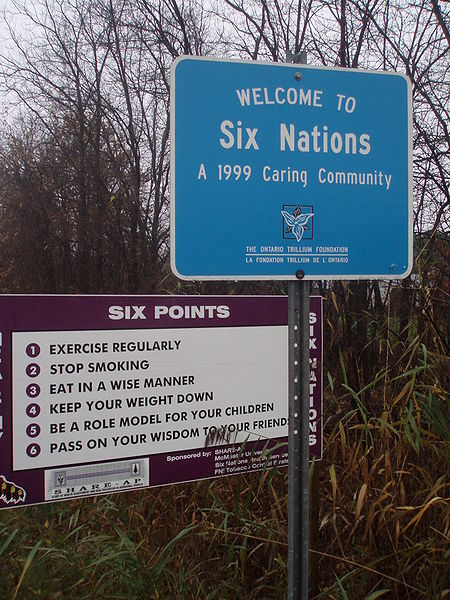Global Water Futures has announced funding for a new research collaboration between McMaster researchers and traditional knowledge holders on Six Nations of the Grand River that focuses on addressing water-related issues of training, wellness and resilience, and governance.
Called Ohneganos — Indigenous Ecological Knowledge, Training and Co-creation of Mixed Method Tools, the project is led by Dawn Martin-Hill, the Paul R. MacPherson chair in Indigenous Studies.
Martin-Hill’s team includes Beverly Jacobs from the University of Windsor, and Lori Davis Hill, director of Six Nations Health Services, as well as Christine Wekerle, associate professor of pediatrics and mental health team leader at McMaster. They and other academic and community partners will work in three teams to address specific areas of interest identified in consultations with Six Nations.
The training team will bridge and combine traditional ecological knowledge and western science when it comes to accredited water management training and will create bilingual resources to improve communities’ capacity to manage water-related challenges.
The wellness team will work to address the impact of water crises on mental health, especially among youth.
“We also plan to conduct a survey to explore water anxieties and stressors on young mothers,” said Martin-Hill, adding that more than half of the home births at Six Nations are in homes without running water.
The governance team will work with community partners to train youth and the community members in water governance and rights in accordance with Indigenous laws.
“All three teams will focus on issues of addressing stewardship over time; crafting bilingual, relevant resources; and fostering resilience,” said Martin Hill. “We want to develop an enduring legacy of Indigenous knowledge harmonization with western science through the co-creation of sustainable water management pathways for the community.”
The projects will produce a bilingual science text for school curriculum; turtle sensors tracking and a mobile application; two row paddle digital river stories; and an ecosystem inventorying medicines.
Ohneganos and five other three-year projects are sharing $1.63-million in funding, in addition to 33 GWF projects that address Indigenous community water issues.
While the overall goal of the GWF research program is to better prepare for and predict climate change threats and sustainably manage freshwater resources in Canada and cold regions worldwide, these particular projects address unique challenges.
“Through these co-created and co-led projects, we are working with our Indigenous partners in an unprecedented way to work together to co-develop solutions for critical community water security challenges, while trying to decolonialize water science,” said John Pomeroy, director of GWF.
Global Water Futures is a seven-year, University of Saskatchewan-led research program established within the Global Institute for Water Security in 2016 and funded in part by a $77.8-million grant from the Canada First Research Excellence Fund. The research goal is to transform the way communities, governments, and industries in Canada and other cold regions of the world prepare for and manage increasing water-related threats.
This article has been edited for style and content from the original.









